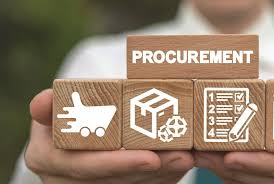The hospitality industry is constantly evolving, with new technologies, sustainability initiatives, and changing consumer demands influencing operations. One of the most critical aspects of this industry is hospitality procurement, which plays a vital role in ensuring the seamless functioning of hotels, resorts, and other establishments. As we look to the future, several key trends are emerging that will redefine how procurement is managed in the hospitality sector.
1. The Rise of Sustainable Procurement
Sustainability has become a major focus across industries, and hospitality procurement is no exception. With increasing awareness of environmental issues, hotels and hospitality businesses are prioritizing eco-friendly products and sustainable supply chains. This includes sourcing biodegradable amenities, energy-efficient appliances, and responsibly sourced food products. Additionally, procurement teams are working closely with suppliers who follow ethical labor practices and implement carbon footprint reduction strategies.
Sustainable procurement not only helps the environment but also enhances a hotel’s reputation and appeal to eco-conscious travelers. Many hospitality businesses are now integrating sustainability requirements into their vendor selection processes, ensuring long-term environmental responsibility.
2. Digital Transformation in Procurement Processes
The integration of digital technologies is revolutionizing hospitality procurement. Procurement teams are leveraging artificial intelligence (AI), automation, and data analytics to streamline operations, improve supplier management, and optimize costs.
- AI-driven procurement platforms help analyze data to identify cost-saving opportunities and predict demand trends.
- Blockchain technology enhances transparency and traceability, ensuring that the products sourced are authentic and ethically produced.
- E-procurement systems improve efficiency by automating purchase orders, tracking inventory in real-time, and reducing paperwork.
As these technologies become more sophisticated, they will continue to drive efficiency and cost-effectiveness in procurement strategies.
3. Strategic Supplier Partnerships and Diversification
Traditional supplier relationships are being redefined as businesses recognize the importance of strategic partnerships. Instead of focusing solely on cost-cutting, hospitality procurement is shifting towards value-driven collaborations with suppliers who offer reliability, quality, and innovation.
Additionally, supply chain disruptions caused by global events have highlighted the need for supplier diversification. Hotels and resorts are now exploring multiple sourcing options to mitigate risks associated with geopolitical tensions, trade restrictions, and pandemics. Diversifying suppliers ensures business continuity and prevents supply chain bottlenecks.
4. Customization and Personalization in Procurement
Consumer expectations are evolving, with guests seeking personalized experiences. This shift is influencing procurement decisions, as hotels and hospitality businesses look for customizable solutions to enhance guest satisfaction.
- Personalized room amenities tailored to guest preferences.
- Bespoke furniture and interior designs that reflect the brand’s identity.
- Custom dining experiences featuring locally sourced ingredients.
By incorporating personalization into procurement strategies, businesses can create unique guest experiences that set them apart from competitors.
5. Cost Optimization and Budget Efficiency
With inflation and fluctuating economic conditions, cost management remains a top priority in hospitality procurement. Businesses are adopting strategic approaches to optimize procurement budgets without compromising quality.
Some effective cost-saving strategies include:
- Bulk purchasing agreements to secure better pricing.
- Supplier negotiations to achieve long-term value rather than short-term savings.
- Inventory management systems to reduce waste and control expenses.
By focusing on cost efficiency, hospitality businesses can maintain profitability while ensuring high service standards.
6. Enhanced Focus on Compliance and Risk Management
Compliance with local and international regulations is becoming increasingly important in hospitality procurement. Hotels must adhere to labor laws, environmental regulations, and health standards to avoid legal complications.
Procurement teams are investing in compliance management tools to:
- Ensure all suppliers meet legal and ethical standards.
- Monitor changes in industry regulations.
- Implement risk mitigation strategies for supply chain disruptions.
A proactive approach to compliance and risk management helps maintain operational stability and protects the brand’s reputation.
7. The Role of Artificial Intelligence and Big Data
Artificial intelligence and big data are playing a transformative role in hospitality procurement by enabling more informed decision-making. AI-powered analytics provide insights into:
- Market trends and pricing fluctuations.
- Supplier performance evaluations.
- Demand forecasting for seasonal variations.
By leveraging data-driven strategies, businesses can improve procurement efficiency, reduce costs, and enhance supply chain resilience.
8. Local and Ethical Sourcing Practices
Supporting local businesses and ethical sourcing has gained traction in the hospitality industry. Hotels and resorts are prioritizing suppliers who align with fair trade principles and sustainable farming practices. This approach not only strengthens local economies but also appeals to socially conscious travelers.
Hospitality procurement teams are actively seeking:
- Locally sourced organic food and beverages.
- Fair trade-certified linens and textiles.
- Sustainable construction materials for renovations.
By adopting ethical sourcing practices, hotels can enhance their corporate social responsibility (CSR) initiatives and build a strong brand reputation.
Conclusion
The future of hospitality procurement is being shaped by sustainability, technology, strategic partnerships, and evolving consumer preferences. As the industry continues to evolve, procurement professionals must adapt to these trends to remain competitive. By embracing digital transformation, prioritizing ethical sourcing, and optimizing costs, hospitality businesses can enhance operational efficiency and elevate guest experiences.



